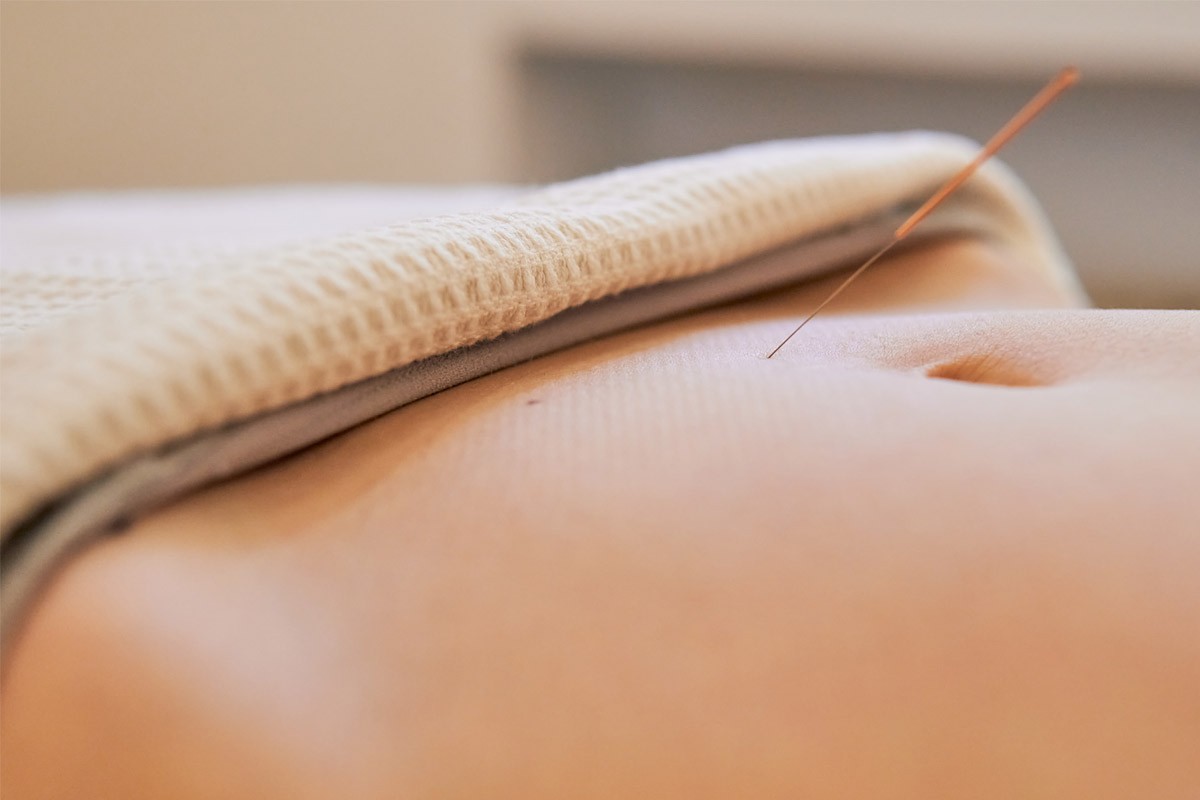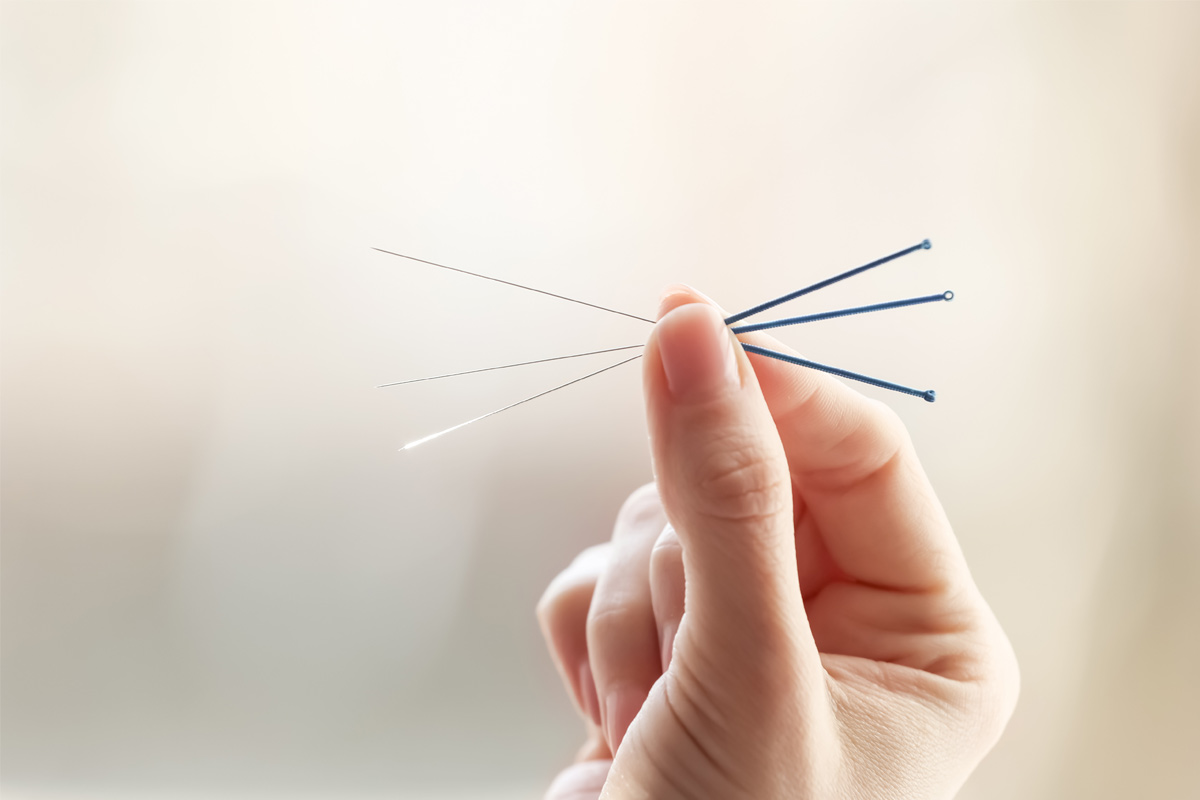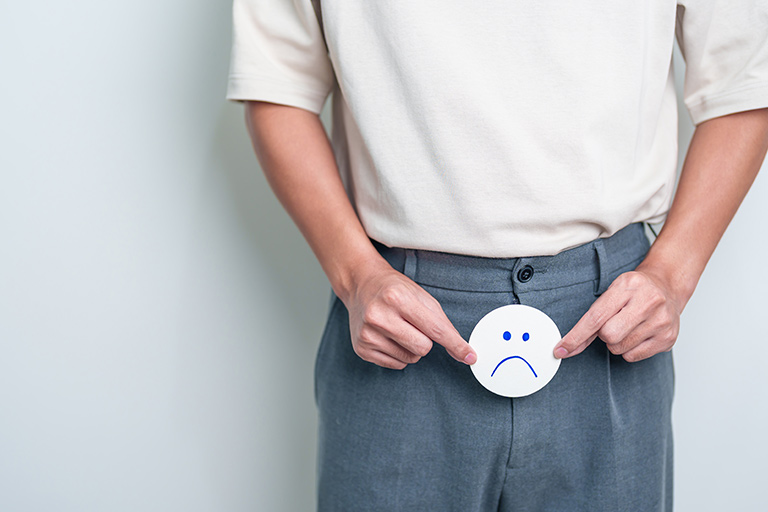How Much Acupuncture Should You do to Improve Your IVF Outcomes?
Acupuncture’s incorporation into fertility treatments, particularly in vitro fertilization (IVF), has seen a marked increase. This therapy offers potential benefits, including stress reduction and improved blood flow, which may positively influence IVF success. The purpose of this article is to provide an overview of the optimal frequency and timing of acupuncture treatments to maximize potential IVF outcomes. It is crucial to consult both an IVF specialist and a licensed acupuncturist to develop a personalized treatment plan.
Acupuncture, which originated in Traditional Chinese Medicine (TCM), is the insertion of tiny needles into particular spots on the body. According to TCM, these locations, known as acupoints, are located along meridians, which are passageways that carry vital energy, or Qi. Imbalances or blockages in Qi flow are thought to lead to several health concerns, including infertility. Acupuncture seeks to restore the balanced flow of Qi, boosting general health and aiding the body’s natural healing processes.
How Acupuncture may Support IVF Success?
Acupuncture may offer several benefits that support IVF success.
- Stress Reduction: Acupuncture stimulates the release of endorphins, which have a calming effect. Stress is known to negatively impact fertility. Managing stress through acupuncture can create a more favourable environment for conception.
- Improved Blood Flow: Acupuncture can enhance blood circulation, particularly to the reproductive organs. Increased blood flow to the ovaries and uterus may improve follicle development and endometrial receptivity.
- Hormonal Regulation: Acupuncture may help regulate hormone levels, which are crucial for optimal reproductive function. Balanced hormones can improve ovulation and endometrial lining development.
- Enhanced Ovarian Response: Some studies suggest that acupuncture may improve ovarian response to stimulation medications. This can lead to the retrieval of a higher number of quality eggs.
- Increased Endometrial Thickness: A receptive uterine lining is essential for successful embryo implantation. Acupuncture may promote endometrial growth, contributing to a thicker and more receptive lining.
When is the Best Time to Get Fertility Acupuncture?

Studies have shown that, if possible, beginning acupuncture treatments several months (ideally 3 months or more) before attempting to conceive allows for the optimization of overall reproductive health. This timeframe enables the acupuncturist to address underlying imbalances, regulate menstrual cycles, increase blood flow to the uterus and improve egg or sperm quality.
For those undergoing IVF, starting acupuncture 8 to 12 weeks prior to the embryo transfer is often recommended. Additionally, acupuncture around the time of embryo transfer, specifically before and after the procedure, has shown potential benefits. Treatments are structured during the follicular phase, around ovulation, and during the luteal phase can be advantageous. It’s crucial to consult with a licensed acupuncturist specializing in fertility to create a personalized treatment plan that aligns with individual needs and medical history.
The Importance of Timing: Pre-IVF Acupuncture
Pre-IVF acupuncture aims to prepare the body for the rigorous IVF process. It focuses on improving overall reproductive health and creating a balanced internal environment.
- Preparing the body for the IVF process: Pre-IVF acupuncture establishes a foundation of optimal health. It addresses any underlying imbalances that could hinder IVF success.
- Improving overall reproductive health: This phase focuses on regulating the menstrual cycle, improving ovarian function, and enhancing sperm quality, if applicable.
Recommended frequency and duration of pre-IVF acupuncture typically involve several weeks to months before starting IVF. General guidelines suggest weekly or bi-weekly sessions. Individualized treatment plans are essential, as patient needs vary. Stress reduction plays a critical role during this period, as elevated stress levels can negatively impact fertility.
Acupuncture During the Stimulation Phase
Acupuncture during ovarian stimulation aims to support optimal follicular development and manage medication-related stress.
- Benefits of acupuncture during ovarian stimulation: Acupuncture manages stress related to medication and monitoring, supports optimal follicular development, and potentially improves blood flow to the ovaries.
- Reduced side-effects from the stimulation medications: Acupuncture and chinese herbs during the stimulation phase help with reduced side effects such as bloating, headaches, night sweats and even ovarian hyperstimulation.
Recommended frequency often increases during this phase, with as often as 1 to 2 times per week, or more frequently depending on individual response.
Acupuncture Around Embryo Transfer
Acupuncture on the day of or within 24-hrs prior to embryo transfer aims to enhance uterine relaxation and receptivity.
- The significance of acupuncture pre-transfer and post-transfer: Potential benefits include uterine relaxation and receptivity. The “before and after” transfer protocol is commonly used.
Frequency and timing typically involve 1 session before and 1 session after the transfer. Additional sessions in the days leading up to and following the transfer may be beneficial, particularly in the 3-5 day implantation window after transfer.
Post-Transfer Acupuncture: Supporting Implantation
Post-transfer acupuncture aims to support the luteal phase and enhance implantation.
- The role of acupuncture in the luteal phase: Acupuncture supports progesterone production, reduces the risk of early miscarriage, and manages stress during the “two-week wait.”
Recommended frequency varies, with protocols including weekly or bi-weekly sessions. Individualized treatment is essential, based on patient response and comfort.
How to Improve Fertility and IVF Success?

Improving fertility and IVF success involves a multifaceted approach, addressing both physical and lifestyle factors. Here are six key strategies:
- Maintain a Healthy Weight: Both being overweight and underweight can disrupt hormonal balance and ovulation. Achieving a healthy BMI through balanced diet and regular exercise optimizes reproductive function.
- Optimize Nutrition: A diet rich in fruits, vegetables, whole grains, and lean proteins supports overall health and fertility. Adequate intake of folic acid and other essential nutrients is crucial.
- Manage Stress Levels: Chronic stress can negatively impact hormonal balance and fertility. Techniques like yoga, meditation, and regular exercise help reduce stress and promote relaxation.
- Limit Exposure to Toxins: Minimize exposure to environmental toxins like pesticides, heavy metals, and chemicals found in certain household products, as they can negatively affect fertility.
- Consult with Healthcare Professionals: Regular consultations with fertility specialists and healthcare providers are essential. They can provide personalized guidance, monitor progress, and address any underlying medical conditions.
Acupuncture holds promise as a valuable complementary therapy for individuals undergoing IVF. Its potential benefits, including stress reduction, improved blood flow, and hormonal regulation, may contribute to enhanced IVF outcomes. The optimal frequency and timing of acupuncture treatments vary depending on the individual and the stage of the IVF process. Consistent communication between the IVF specialist and a licensed acupuncturist is essential to create a personalized treatment plan. Tailoring acupuncture to each patient’s needs and responses is paramount.
For personalized acupuncture treatments to support your IVF journey, contact White Birch Clinic at (289) 837-2026.







